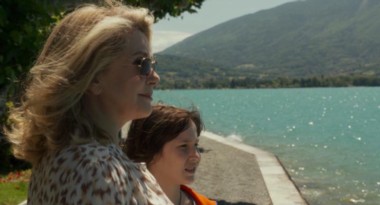Spend some time in the Valley—12 to 15 minutes ought to do it—and you’ll come to realize that there are a few things of which we’re awfully proud. One of those is our area’s long, rich tradition of farming, and the modern-day ideas that have grown out of that history: our many co-ops and farm-to-table restaurants that showcase our local produce, meats and everything in between. You could probably find a place that serves only trucked-in food, but it won’t be easy. Tied in with that tradition is the Valley’s keen nose for social justice, which makes many happy to pay a bit more for their mizuna, knowing that it will go to support a local farmer.
Of course, the vast majority of us who call the Valley home have probably never worked on a farm. And that’s okay; part of what makes the area such an endlessly engaging place to live is the push and pull between its dual identities as city and country—and a big part of what the city brings to the table is the extensive arts and cultural scene that gives us something to do after polishing off that last bit of locally sourced dessert. This week, a few films coming to the area manage to wrap up many of our local obsessions in a few neat little packages.
In Shelburne Falls on Friday and Saturday night, Pothole Pictures will host director Steve Alves as he presents his film Food For Change at the town’s Memorial Hall Theater (a volunteer-run, non-profit affair, by the way). A documentary look at the resurgence of food co-ops across America, Alves’ film focuses particularly on the Franklin Community Co-op, which operates Green Fields Market in Greenfield and McCusker’s Market in Shelburne Falls, two thriving businesses that serve as de facto community hubs. Alves (whose jazz trio Midnight Swerve will provide pre-screening entertainment) will be on hand to discuss the issues surrounding the co-op movement.
Also up in Franklin County this week is the 12th Annual Anti-Racism Film Festival, unspooling on Saturday in an all-day affair at the All Souls Unitarian Universalist Church in Greenfield. With a goal of helping audiences “bridge racial, class and ethnic lines” to build a stronger community, it’s a festival with more on its mind than many. First on the slate this year are two films that explore the state of manual laborers today: The Harvest, an award-winning documentary look at three migrant families who travel from Texas to Michigan as they harvest crops; and Farmingville, a 2004 Sundance winner that tells the story of a suburban community rocked by the hate-based attempted murder of two Mexican day workers.
Later in the day, the festival will screen Skins, director Chris Eyre’s film about a fateful conflict between two brothers on a South Dakota Indian reservation—one an officer of the law, the other a damaged and alcoholic veteran. Echoing the wider issues of reservation life within the United States, Skins tells a hard but important story. Wrapping up the 2014 festival is Fruitvale Station, a 2013 drama directed by Ryan Coogler. His first feature film tells the story of the final day of Oscar Grant, a young father who was shot in the back and killed by a transit police officer in San Francisco. That officer—who claimed he thought he was shooting his Taser and not his pistol at the face-down Grant—was later convicted of involuntary manslaughter; his two-year sentence (coming after the many cellphone videos of the incident) touched off a wave of protests.
Also this week: Film legend Catherine Deneuve returns to the screen in On My Way, a new film from French actress and director Emmanuelle Bercot. In it, Deneuve is Bettie, a former beauty queen who finds herself alone in her early 60s and saddled with the financial troubles of the family restaurant. After settling on a quick drive as a good way to clear her head, she is soon hurtling headlong into a full-fledged road trip that might change more of her life than she expected.•
Jack Brown can be reached at cinemadope@gmail.com.



